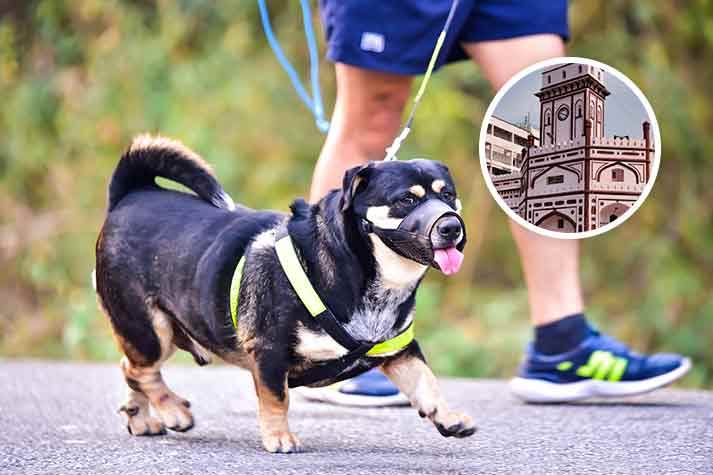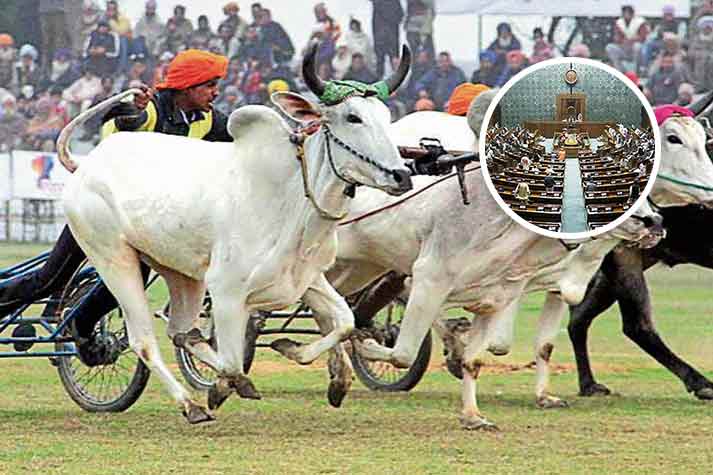
15 Jul
Gujarat's Dog Ownership Rules Under Scrutiny Amid Rising Attack Concerns
A surge in dog attacks in Gujarat has prompted sharp public debate over new regulations that tighten the leash on pet ownership. The most contentious of these is a rule introduced last month by the Surat Municipal Corporation (SMC), which requires dog owners to obtain written consent from ten neighbours (or approval from their housing society) before applying for a pet license.
The regulation was announced in the aftermath of a fatal attack in Ahmedabad’s Hathijan area, where a Rottweiler mauled a four-month-old girl to death and left her teenage aunt seriously injured.
On May 12, a four-month-old infant was mauled to death by a Rottweiler while her 17-year-old aunt suffered severe injuries while trying to protect her. The attack, which unfolded in a residential society, ignited a firestorm of grief, outrage and calls for pet ownership accountability in the state.
The Rottweiler, apparently unregistered, is owned by Dilip Ganpat Patel. According to the complaint filed by the infant’s grandfather, Dashrath Jasu Chauhan, at Vivekanand Nagar police station, neighbours alerted him about the attack. While the girl’s injuries proved fatal and she died in hospital the same day, her aunt sustained wounds on the waist and stomach.
On May 14, Patel was arrested under provisions of the Bharatiya Nyaya Sanhita for causing death by negligence. The Ahmedabad Municipal Corporation (AMC) impounded the Rottweiler, confining him to a civic dog shelter.
While the incident led to widespread calls for accountability, the SMC's neighbour-consent rule has sparked backlash from dog owners and pet welfare groups. In Surat, owners protested the new guidelines by marching to the district collector’s office and submitting a memorandum opposing what they termed a “draconian” measure.
As Rakshit, a pet owner with four dogs, questioned: “Where do I rehome my pets, on the streets?” The city’s Dog Owners’ Welfare Committee argued that responsible ownership, not bureaucratic hurdles, was the answer.
Animal rights groups, meanwhile, are pushing for breed-specific bans. PETA India has urged the state to prohibit the breeding, sale, or ownership of eight dog breeds they deem dangerous: Pit Bull Terrier, Rottweiler, Pakistani Bully Kutta, Dogo Argentino, Perro de Presa Canario, Fila Brasileiro, Bull Terrier, and XL Bully. The organisation claims such breeds are often sold to unprepared owners, leading to attacks or abandonment.
The Gujarat government has adopted a measured stance. State Health Minister Rushikesh Patel clarified that the Rottweiler involved in the Ahmedabad attack was not classified as a “wild dog,” but confirmed that a broader policy addressing dangerous breeds is under consideration.
Meanwhile, efforts to formalise pet ownership are underway. In Ahmedabad, the AMC has made registration mandatory for all pet dogs, extending the deadline to July 31. Owners must submit vaccination records and breed information, along with a Rs 500 fee. So far, more than 18,000 dogs have been registered, though officials estimate the total dog population in the city to be around 50,000. Registrations have been highest in western Ahmedabad, particularly for breeds like German Shepherds and Labradors.
In Surat, licensing requirements are even more rigorous. Applicants must furnish their Aadhaar card, property tax receipts, a notarised undertaking, and consent from ten neighbors. Non-compliance could attract penalties enforced by mobile courts.
Gujarat’s pet ownership policies operate under the Prevention of Cruelty to Animals Act, 1960, and the Animal Birth Control (Dogs) Rules, 2001. These frameworks require vaccination documentation, breed identification, and, in some cases, microchipping for traceability.
At the national level, the Centre in March 2024 banned 23 dog breeds deemed “ferocious,” following a Delhi High Court order and sustained campaigning by PETA. The ban covers import, breeding, and sale, and mandates sterilisation and registration for existing dogs from the banned list.
Looking ahead, the Ahmedabad civic body is collaborating with animal welfare groups and veterinary experts to draft new pet safety protocols. These may include mandatory leashing in public and muzzling of aggressive breeds. However, any state-level reforms must reconcile with guidelines issued by the Animal Welfare Board of India, which advises against blanket bans or forced muzzling. The Board supports microchipping and public education as safer, more effective tools.
The incident in Hathijan has brought the underlying tension between public safety and responsible pet ownership into sharp focus. Whether Gujarat’s evolving policy response leans toward community-driven restrictions or a more education-based approach remains an open question.





AUTHOR’S BIO
Carry My Pet
Passionate pet enthusiasts and globetrotters, dedicated to easing furry friends' journeys worldwide. Penning tales of compassion at CarryMyPet, where every relocation is a tail-wagging adventure.